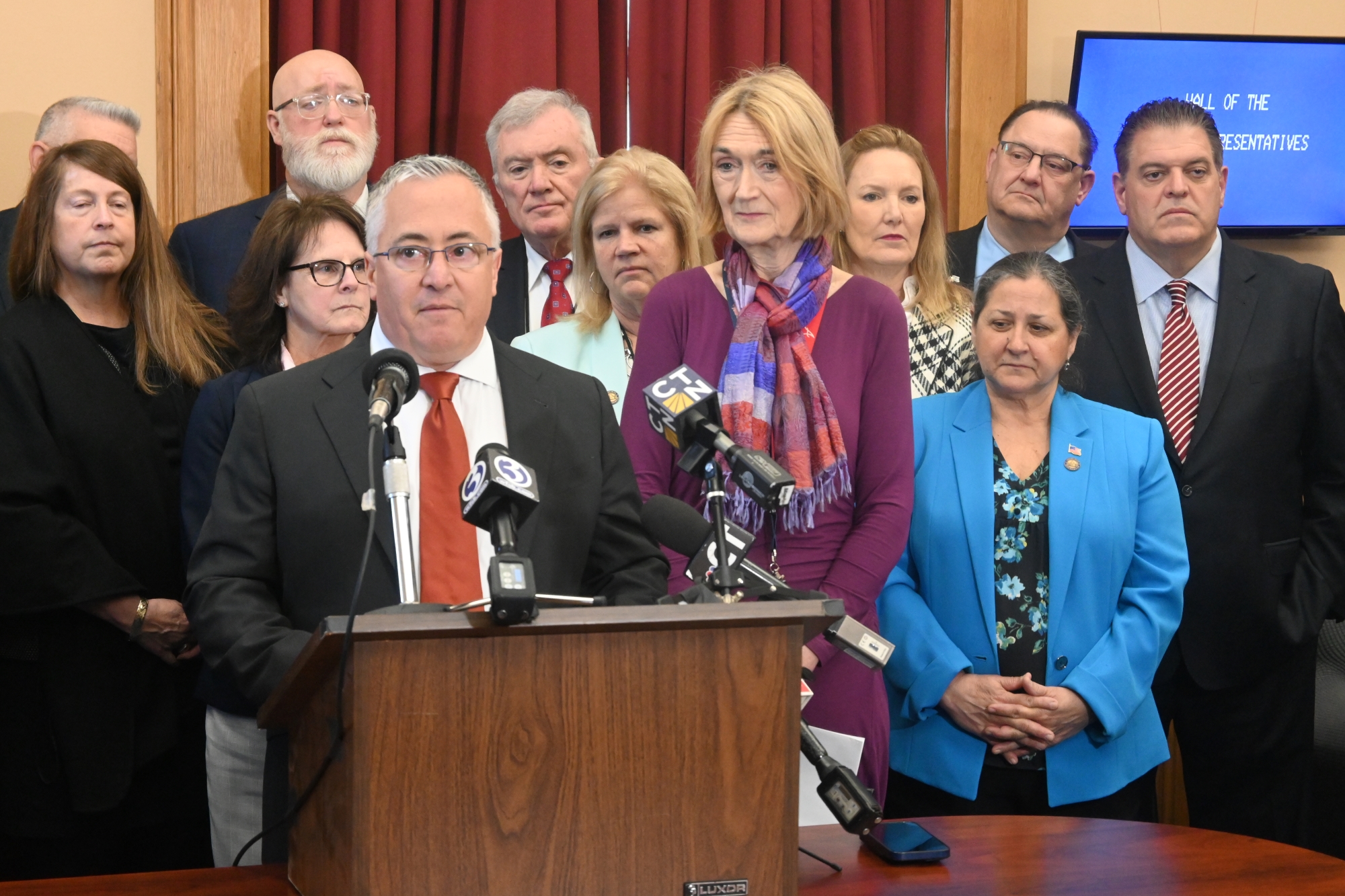

Reps. Bolinsky & Foncello, House Republicans Offer Plan to Balance State Budget
Contains structural spending reforms, invests in local education, under the spending cap
HARTFORD—Today at the State Capitol, State Reps. Mitch Bolinsky (R-106) and Martin Foncello (R-107), along with their House Republican colleagues released a plan to bring the second year of the state budget into balance, keeping a promise to Connecticut taxpayers by respecting the constitutionally required fiscal guardrails, and focusing on sustainable affordability, pursuing structural spending reforms, while also supporting increased funding in critical areas, like local and special education to help relieve pressure on local property taxpayers.
House Republicans began developing their plan to balance the budget after the legislature’s Appropriations Committee could not agree on a revised spending plan for the $25.9 billion FY 24-25 budget’s second year, effective July 1, 2024. By declining to submit a deficiency plan, the budget was out of balance and subject to discretionary decision-making by the Governor, who would have authority to make changes outside of public process, and without legislative approval.
As members of the Appropriations Committee, both Newtown legislators were discouraged that the Democrat-led budget committee refused to fulfill its constitutional responsibility to present a state budget adjustment by the committee’s deadline.
Since the pandemic, many school districts, Newtown included, have struggled with skyrocketing special education costs said Rep. Bolinsky. The budget plan we’re proposing keeps the promise we in the General Assembly made last year to fully fund special education in Connecticut. Without this state funding, towns would be left holding the bag, land the state’s broken promise would be forced upon hard-working families as higher local property taxes in Newtown and every town around the state. There’s a better, more sustainable way!”
Bolinsky noted that the School and State Finance Project, a nonpartisan policy organization focused on ensuring equitable education funding for all Connecticut students, applauded the House Republican budget plan ‘that prioritizes K-12 education, reduces potential burdens on property taxpayers and local budgets, and keeps the promises made last year to Connecticut’s over 500,000 students.”
Rep. Foncello, a member of the Appropriations Committee, was proud to stand with his colleagues for this announcement.

“Our proposals would do a lot of good for residents of the Greater Danbury area. Families are feeling the pinch in their household budgets so anything we as a state can do to ease that burden should be a priority for all legislators. I like that we are proposing to alleviate some of the pain at the grocery store checkout by eliminating the truck tax and providing CT Foodshare through an allocation to the Connecticut Nutrition Assistance Program.”
Keeping the promise to Connecticut families, the House Republican plan directs their focus toward supporting children at the beginning of their educational journey. Republicans propose $236 million more for local education funding, including an additional $79 million more for surging special education costs. By providing an additional $12 million to increase reimbursement rates ($120 per hour to $167) to Birth to Three child services providers, Republicans will unlock more federal funding to help with staffing shortages. Responding to the state’s childcare crunch, Republicans matched the $12 million increase proposed by Gov. Lamont for the Care4Kids program.
The House Republican plan doesn’t tap remaining federal American Rescue Plan Act (ARPA) dollars, leaving at least $200 million available for acute needs such as funding for nonprofit service social providers, shoring up the state’s unemployment compensation fund, additional childcare investments, or higher education. The House Republican budget adjustments have been vetted by the state’s nonpartisan Office of Fiscal Analysis.
In their plan to shift budget priorities toward core commitments to residents, House Republicans also propose to:
- Keep a scheduled $42m deposit to the Teachers’ Retirement Fund that Democrats would forgo
- Allocate increase to Medicaid rates to behavioral health providers, mental health services for kids ($7m)
- Address surging price of goods, groceries, and services by eliminating Democrats’ truck tax
- Increases funding to municipalities to implement early voting ($3.6m)
- Deliver improved ambulance provider Medicaid rates Governor proposed to cut ($5m)
- Reinstates a portion of PILOT funding for municipalities ($16.3m)
- Provide CT Foodshare allocation (H.B. 5011) ($2m)
- Supply $1 million allocation for homeless shelter needs
House Republicans fund priority initiatives by continuing their push for structural changes in the budget, including:
- Maintaining, rather than increasing, Husky C healthcare eligibility requirements ($8.5m savings)
- Budget for state employee vacancies according to current hiring patterns (an additional $26m savings)
- Eliminating “free” healthcare for undocumented immigrants ($45m savings)
Changes policy on enhanced inmate communications; require them to pay portion of cost of calls ($10m savings).

